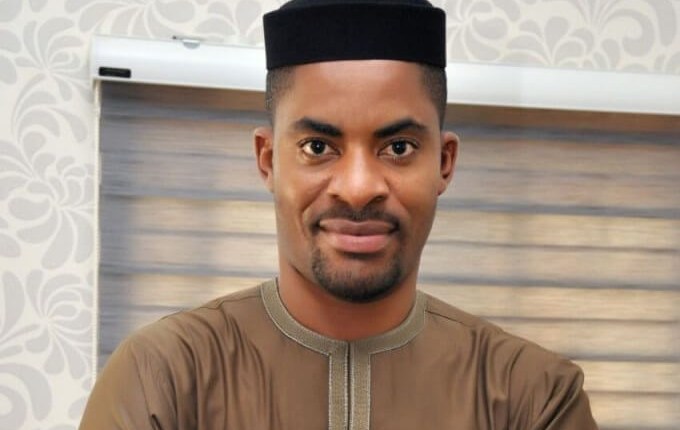Lawyers and associates of activist Deji Adeyanju on Friday alleged serious ethical misconduct against the registrar of Kano State High Court.
Balarabe Adamu was said to have absconded from the court on Thursday afternoon when documents clearing Mr Adeyanju as having met his bail conditions were brought in, thereby stalling the release of the political activist.
Mr Adeyanju was granted bail on Monday by Rabiu Sadiq, a judge at the state court, 67 days after he was first arrested in Abuja by the police who then failed to file charges against him.
News that Mr Adeyanju had secured bail was met with widespread jubilation by his supporters online, with many expressing relief that the activist would regain freedom ahead of the presidential elections in which his associates had accused the government of plotting to prevent him from taking part.
“We now have incontrovertible grounds to suggest that the Buhari administration is fearful of Deji Adeyanju and interfering in the judicial process to prevent him from being released before the elections,” his friend, Ariyo-Dare Atoye, told PREMIUM TIMES Friday afternoon.
The court granted Mr Adeyanju bail with terms that he must provide two sureties who have land assets in Kano State, as well as submit his international passport.
Those conditions were met on Thursday afternoon, including the verification of assets, despite “harrowing hurdles” that had to be crossed, Mr Atoye said.
“Apparently, they thought that we would not be able to meet the conditions within a few days because it usually takes at least 10 days to verify such properties,” Mr Atoye said. “We were, however, able to fast track it and got it done within 72 hours between Monday and Thursday.”
Haruna Magacci, Mr Adeyanju’s lawyer in Kano, confirmed that all the assets had been verified at the state’s land bureau and submitted to the court on Thursday.
“But when we arrived at the court to present the documents, the registrar had closed even though the judge was still in the chambers,” Mr Magacci said.
Mr Atoye said he had two telephone calls at separate hours preceding the submission of the documents in court, and Mr Adamu confirmed that he was in court to receive them.
“We learnt from people in court that he ‘fled’ to avoid submitting the documents to the judge yesterday,” Mr Atoye said.
He added that when they gave the documents to the judge, he declined to sign a warrant for Mr Adeyanju’s release from prison unless the registrar was present.
The registrar could neither confirm nor deny whether he fled from the court as part of an alleged conspiracy to frustrate release of Mr Adeyanju from prison.
When PREMIUM TIMES called him Friday afternoon, he answered the call, but after listening to the enquiries and learning that it had to do with Mr Adeyanju, he abruptly disconnected the line.
Subsequent calls and text messages were ignored.
Mr Atoye appreciated Mr Sadiq for according a bail to Mr Adeyanju, but said the judiciary must do more to “resist executive interference and recklessness” in its affairs.
The state prosecutor, Musa Daihuru, told PREMIUM TIMES he was in court when Mr Adeyanju was granted on February 18. He expressed shock that he was still held in prison.
Backstory
The police arrested Mr Adeyanju on December 13, accusing him of being a suspect in a 2005 murder case in Kano.
The police had called Mr Adeyanju to come for his the last of three mobile telephones seized from him when they initially arrested him on November 28 for leading a protest against security agencies’ bias ahead of the general elections.
But once he arrived at the FCT Command Headquarters, he was held for five days without bail.
He was later transferred to Kano to answer charges for alleged involvement in a deadly attack on a Kano businessman in January 2005.
But the police did not file charges against him there.
Instead, they asked a magistrate who admitted lacking jurisdiction to hear murder allegations to remand him in Kano Central Prison near the Emir Palace, where he had remained for 71 days and counting.
PREMIUM TIMES confirmed that Mr Adeyanju was charged with murder in a trial that lasted from mid-2005 until 2009. But the activist was discharged and acquitted, alongside his co-defendants.
Festus Keyamo, a rights lawyer who represented Mr Adeyanju in the case, said authorities did not appeal the judgement because they were also satisfied that Mr Adeyanju was not involved in the murder.
Mr Atoye and other friends of Mr Adeyanju said the Nigerian government ‘hatched’ the plot to pick Mr Adeyanju on a matter in which he had been discharged because of his activism.
“Deji Adeyanju is arguably the most vigorous activist to confront the Buhari regime and its many democratic failings,” Mr Atoye said. “But their plan to keep him in custody using all evil and extralegal machinations has become too glaring to Nigerians and they will respond accordingly at the poll on Saturday.”







